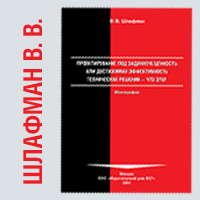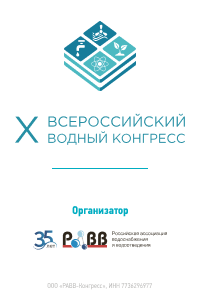№10|2014
ENVIRONMENTAL PROTECTION
bbk 000000
UDC 628.11:504.054
The impact of economic activities on the sanitary-ecological state
of the Moscow drinking water sources
Summary
Human economic activities and water use conditions in the basins of the Moskva, Vazuza and Upper Volga rivers are the key factors that determine the natural water quality. The water resources used for the Moscow water supply are formed from surface water vulnerable to the anthropogenic impact. The sanitary-ecological state of the water sources, the hydrologic river regime and water quality determine to a large extent the specific features of the public water supply at present and will have an impact on its development in future. Establishing an efficient monitoring system and coordinating the activities of supervising, regulating and operating organizations in the field of maintaining proper sanitary and ecological state of the rivers, water reservoirs and their catchment areas are the prerequisites of the reliable water supply of the metropolitan area and sustainable water use in the Moskva-Oka river basin. Among the problems that demand focused attention are: the storm and wastewater disposal regulations, large-scale villa development at the riverfront, violations of agricultural technologies of manure storage and utilization, low public environmental consciousness, the lack of a reliable mechanism of observing the sanitary and environmental regulations, the lack of appropriate practice of exploitation of rivers and water reservoirs. All that causes gradual degradation of small rivers, water reservoir eutrophication, decrease of self-purification capacities of water bodies, and creates additional difficulties in water treatment. Such scope of work requires the development of schemes of comprehensive use and protection of water and land resources that prescribe measures, schedules, implementation priorities, and sources of financing specifically for a given water utilization system or a river basin. Sustainable use of water resources as well as catchment areas is particularly important for the drinking water sources. Precisely this approach will provide for implementing the legislated in Russia priority of using water bodies for drinking and public water supply to the full extent.
Key words
potable water , monitoring system , sanitary safety , laboratory control , advanced technologies , modular systems
The further text is accessible on a paid subscription.
For authorisation enter the login/password.
Or subscribe







